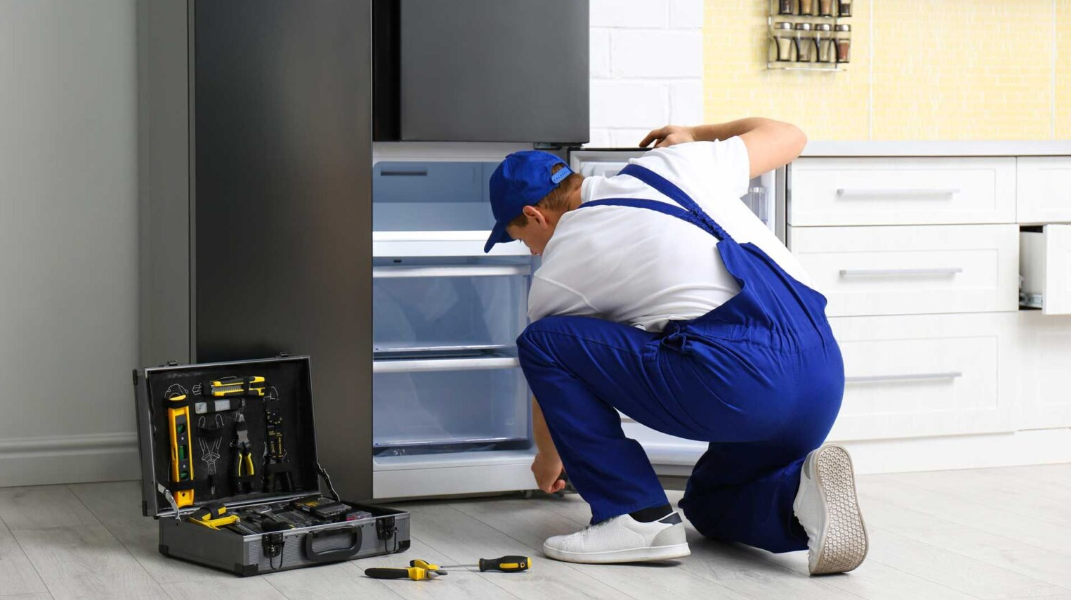When to Repair or Replace Appliances?
Household appliances make our daily lives easier, but they don’t last forever. Over time, they can break down, leaving you with an important decision: Should you repair the appliance or replace it with a new one? Making the right choice can save you time, money, and frustration. In this guide, we’ll discuss key factors to consider when deciding between appliance repair & replacement to help you make an informed decision.
Signs Your Appliance Needs Repair
Even if your appliance isn’t working perfectly, a repair might be all it needs to function like new. Here are some signs that repair is the better option:
- Minor Issues: If the problem is small, like a broken button, faulty wiring, or a worn-out part, it can often be fixed at a low cost.
- Warranty Coverage: If the appliance is still under warranty, a repair may be free or available at a discounted rate.
- Recent Purchase: Appliances that are only a few years old usually don’t need to be replaced. Repairing them can extend their lifespan without a major investment.
- Energy Efficiency: If your appliance is still energy-efficient, repairing it might be a better option than buying a new one that may not offer significant improvements.
When to Replace an Appliance
Sometimes, repairing an appliance isn’t worth the cost or effort. Here are some signs that replacing it is the smarter choice:
- Frequent Repairs: If your appliance keeps breaking down, the repair costs can add up. A new appliance might be a more cost-effective option.
- High Repair Costs: A common rule is that if a repair costs more than 50% of the price of a new appliance, replacement is the better choice.
- Old Age: Every appliance has an expected lifespan. If yours has exceeded its average life expectancy, replacing it may prevent future problems.
- Outdated Technology: Older appliances may lack modern features, be less energy-efficient, and be harder to repair due to unavailable parts.
Lifespan of Common Household Appliances
Knowing the average lifespan of different appliances can help you decide whether to repair or replace them:
- Refrigerators: 10–15 years
- Washing Machines: 10–12 years
- Dryers: 10–13 years
- Dishwashers: 9–12 years
- Microwaves: 8–10 years
- Ovens/Stoves: 10–15 years
- Water Heaters: 8–12 years
If your appliance is nearing or past its lifespan, replacement may be a better long-term investment.
Cost Comparison: Repair vs. Replacement
Before making a decision, compare the costs of repair and replacement:
- Get a Repair Estimate: Contact a professional for a quote on repair costs.
- Check the Price of a New Appliance: Research how much a new model would cost, including delivery and installation.
- Consider Energy Savings: Newer appliances may have better energy efficiency, saving you money on utility bills over time.
- Think About Long-Term Costs: Frequent repairs can add up. A new appliance with a warranty may save money in the long run.
If the repair cost is low and the appliance has several years of life left, repair is the better option. However, if repair costs are high and the appliance is old, replacement is the smarter choice.
Eco-Friendly Considerations
Replacing an appliance has environmental impacts, so consider the following before making a decision:
- Repairing Instead of Replacing: Fixing an appliance reduces waste and keeps it out of landfills.
- Recycling Old Appliances: If you replace an appliance, ensure the old one is recycled properly. Many retailers offer recycling services.
- Energy Efficiency: New appliances often use less electricity and water, reducing your home’s carbon footprint.
If an appliance is still energy-efficient and can be repaired affordably, it’s more eco-friendly to keep using it. However, if a new model significantly reduces energy use, replacement may be the greener choice.
DIY Repairs vs. Professional Help
Some appliance issues can be fixed on your own, while others require professional help:
DIY Repairs
- Simple issues like a clogged filter, loose wire, or broken handle can often be fixed at home.
- Replacing small parts like a light bulb, fuse, or door seal is easy with the right tools.
- Many manufacturers offer troubleshooting guides and online tutorials.
When to Call a Professional
- If the appliance has electrical or gas components, professional repair is safer.
- Complex mechanical issues or major malfunctions require expert knowledge.
- If your appliance is under warranty, professional repair ensures you don’t void the warranty.
Attempting difficult repairs on your own can lead to more damage. If you’re unsure, it’s best to hire a professional.
Final Decision: Repair or Replace?
To decide between appliance repair & replacement, ask yourself these key questions:
- How old is the appliance?
- What are the repair costs compared to a new model?
- Is the appliance still energy-efficient?
- How often does it break down?
- Can it be repaired easily, or are parts difficult to find?
By weighing these factors, you can make the best decision for your budget and home.
Conclusion
Deciding between appliance repair & replacement isn’t always easy, but considering factors like cost, age, and efficiency can help. Repairing an appliance can save money and reduce waste, while replacing it may offer better performance and long-term savings. Before making a final decision, compare repair costs, check the lifespan of your appliance, and think about energy efficiency. A well-informed choice will ensure you get the best value for your investment.

